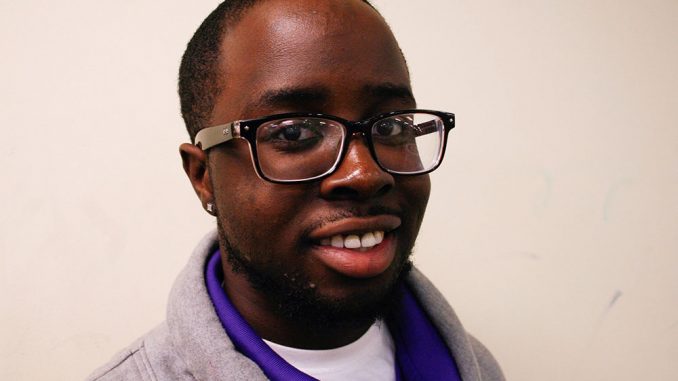
Although the National Panhellenic Council has not yet celebrated its 100th anniversary, the 84-year-old organization has already welcomed Martin Luther King Jr., Jada Pinkett-Smith and Maya Angelou as members of the “Divine Nine” organizations. historically black Greeks.
Two members of Greek life who continue this legacy at Temple are Delta Sigma Theta sister Brandolyn Burks and Alpha Phi Alpha brother Mathos Sokolo.
As participants in the NPHC, Burks and Sokolo support the organization’s goals within the African American community as they move forward in February during Black History Month, both as representatives of the African American Greek life.
The NPHC was established in the early 1900s, at a time when disenfranchisement and racial segregation were prevalent in society. The NPHC manifesto states that it strives to promote “as much as possible unanimity of thought and action in the conduct of collegiate Greek-letter fraternities and sororities.”
From these goals, the NPHC founded the Divine Nine: Alpha Phi Alpha, Alpha Kappa Alpha, Kappa Alpha Psi, Omega Psi Phi, Delta Sigma Theta, Phi Beta Sigma, Zeta Phi Beta, Sigma Gamma Rho, and Iota Phi Theta.
“My organization was founded by 22 African American college women who wanted to make a difference in the community because of the racial injustices they faced,” said Burks, a health information management major.
Burks is vice president of Delta Sigma Theta sorority, a leadership position she says she devotes to helping her sisters in Temple’s Epsilon Delta chapter. Delta Sigma Theta was founded at Howard University in 1914 and its 100-year-old goals are still relevant to Burks, she said.
She grew up among people she called the inspirational African American women of Delta Sigma Theta.
“The original goal of my organization was to uplift the African American community, with an emphasis on women through sisterhood, public service and scholarship,” Burks said. “They had the vision to fight against injustices and participate in positive change. Being a part of Greek life has shown me how to empower myself and others around me.
With more than 300,000 primarily African-American women oriented toward public service, Burks cited her organization’s emphasis on business and professionalism that helped her with public speaking and self-esteem as a as an African-American woman. It’s this constant support that Burks says reminds him that Black History Month isn’t the only commemoration of African-American heritage.
“If we (Delta Sigma Theta) are not recognizing Black history and excellence on a daily basis, then we are not doing our job in (defending) the values and principles established by our founders,” Burks said.
Burks is also part of the National Council of Black Women, which, like Delta Sigma Theta, aims to build a strong coalition of African American women. Burks said this unity is part of what makes the Divine Nine successful.
“Even though we are in different organizations, we are founded on similar beliefs,” Burks said. “We recognize and understand the need to unite African Americans to promote necessary and deserved change for all types of people. »
The Divine Nine also showed Sokolo a sense of unity, he said. The sense of community provided by historically African-American Greek organizations is something he said he didn’t think he’d find elsewhere.
“(Joining the Divine Nine) also opened up a great network for me,” said Sokolo, a strategic communications specialist.

Sokolo also serves as chaplain, historian and corresponding secretary of Alpha Phi Alpha, the first Greek-letter fraternity for African-Americans. Founded in 1906 at Cornell University, its fraternity preamble states that it strives for “a more perfect union among students; help and insist on the personal progress of its members; promote brotherly love and brotherly spirit within the organization.
It’s the “perfect union between the students” that appeals most to Sokolo, he said. He joined Alpha Phi Alpha after seeing his sponsor gain what Sokolo calls a certain confidence recognizable among Alpha Phi Alpha Temple members. He said he greatly appreciates Alpha Phi Alpha’s emphasis on self-improvement and advancement.
“Alpha Phi Alpha was one of many that uplifted the African American community, from the civil rights movement to giving it back to (the current community),” Sokolo said. “Our organizations (educate the community) on the various problems and epidemics that are ravaging it from within. »
This February, in honor of Black History Month, Alpha Phi Alpha aims to remember its history within the African American community at fraternity events.
“In 1906, when our fraternity was founded, it was a time when African Americans were not accepted,” Sokolo said. “It was a drastic step for our seven African-American founding fathers to create a brotherhood that uplifts the community. »
Lora Strum can be contacted at lora.strum@temple.edu.


